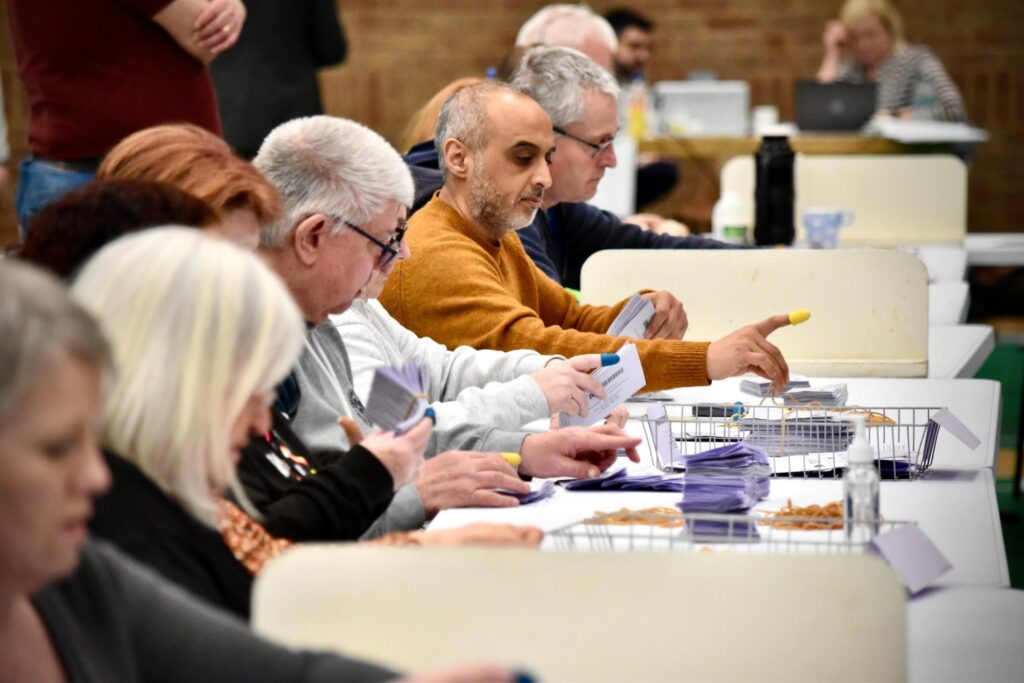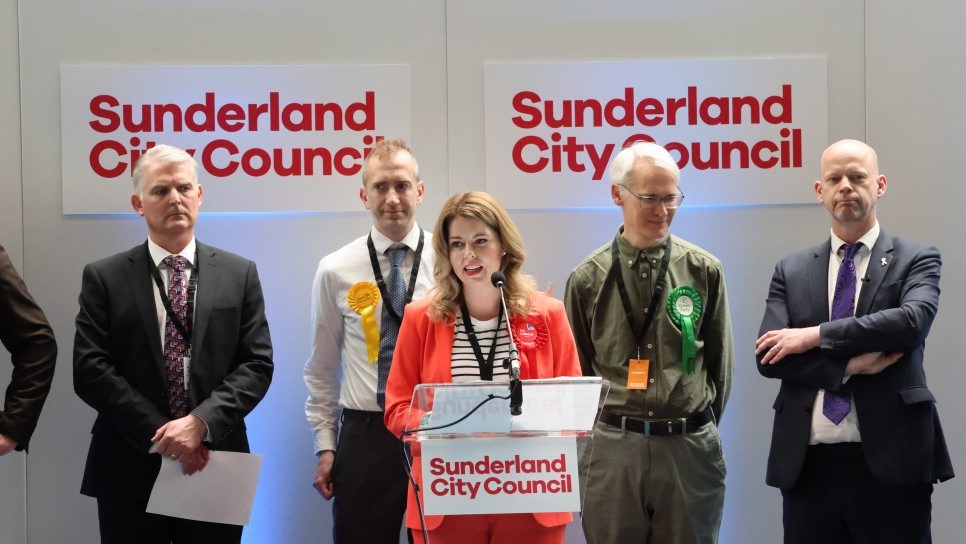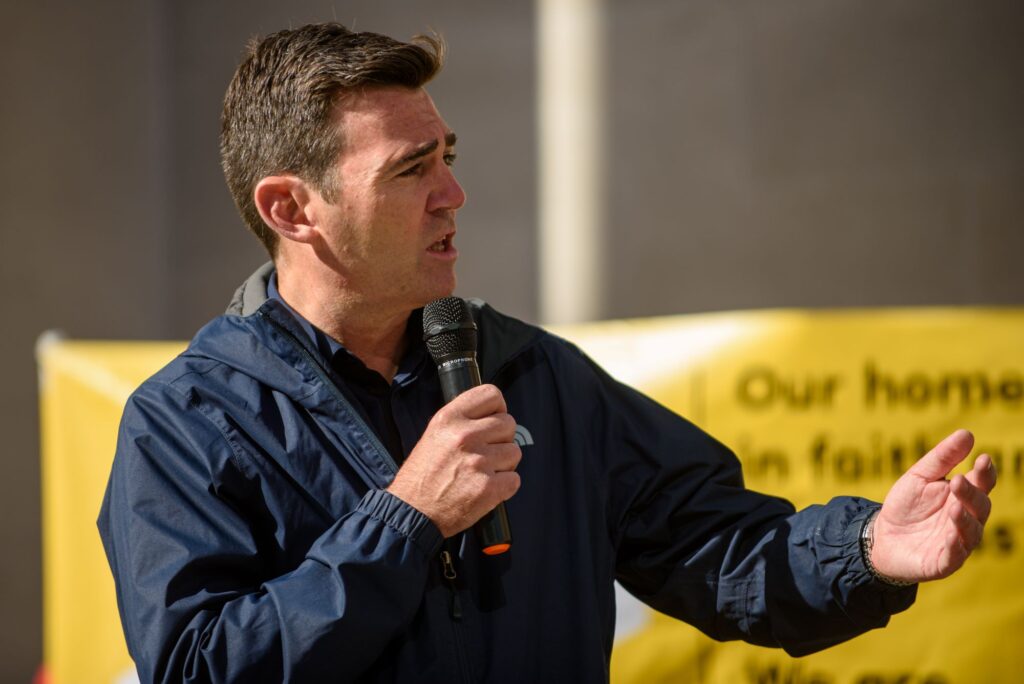
The long-awaited devolution deal in the North East — proper, real devolution with the money for transport until now held back — is finally here. The final count was delivered before the Bank Holiday weekend, way ahead of the rest of the country.
As most people got on with enjoying their long weekends, I waited for news from the rest of the country. A large section of the media obsessed about what the contest in the West Midlands would mean for the Prime Minister’s chances of surviving the next week — it could arguably be seen as a litmus test for his government’s popularity, especially after CCHQ failed to manage expectations on Andy Street’s chances of winning.
However, this narrative ignored the significant variations between the electorate’s views on the candidates and their parties. Incumbents were — to an extent — being judged on their own record: they were not just being dragged down by an unpopular Prime Minister or propped up by a resurgent opposition, compared to the last local elections in 2021.
The North East knew their big winners — Labour’s Kim McGuinness in the North East and the Conservatives’ Ben Houchen in the Tees Valley — before most of the rest of England had even worked out their turnout figures. The North East count led from Sunderland, renowned for its speedy election declarations, was always predicted to be in the first batch of places to announce the result for an elected Metro Mayor on Friday.

So, let’s turn to substance. Kim McGuinness is the model of a modern, dynamic Metro Mayor. She is administratively competent, having previously overseen the Northumbria police force, more interested in policy than profile and genuinely focused on the region.
Her most prominent backers, Julie Elliott MP (the formidable ex-union organiser) and Catherine McKinnell MP (shadow schools minister) are both loyal to their political allies and tough with their opponents, both outside and, when necessary, inside the Labour Party.
- Read more: Why language must matter in a civilised society
- Read more: A poetic place for creativity
It is, I suppose, not a surprise that she won a convincing victory over her predecessor, the vocal Keir Starmer critic Jamie Driscoll. Given that incumbency was a significant driver of success in the other mayoral elections across the country, he underperformed. This is despite the significant profile and fundraising opportunity he gained from his departure from the Labour party, after he failed to apologise for sharing a platform with Ken Loach, who had been accused of antisemitism.
Ben Houchen’s victory, meanwhile, makes him the great survivor — the only non-Labour Metro Mayor left in England. Yet the swing against him is enough to end the political careers of many Conservative Parliamentarians across the Tees Valley area if repeated at the forthcoming General Election.

Unlike Andy Street, a pro-business pragmatist who had largely united the West Midlands over two terms before losing narrowly, Houchen divides opinion. Two of his former allies, the South Tees Development Corporation directors Paul Booth and Steve Gibson, were heavily critical of his decision to, in their view, give away 90% of Teesworks redevelopment of the former steel works, ending the 50:50 structure of the original deal.
A lot of media focus has centred on what Ben Houchen winning or Andy Street losing means for the Conservatives in Westminster. This isn’t the most important question in my opinion: Rishi Sunak was having a tough time long before last week.
- Read more: Kicking off play on home ground
- Read more: Orchestral manoeuvres in the North
What it means for the future division of powers between this region and Whitehall matters much more. The last decade started badly: the One North East regional development agency was abolished, Government Office disbanded. However, the combined authorities in the Tees Valley and North East both now have significant powers, the latter with trailblazer status (largely in recognition of its exceptional officers and delivery capability).
Keir Starmer has already dispatched Sue Gray to meet and work with the Metro Mayors and the newly-elected Kim McGuinness will undoubtedly make an impact. If the Gordon Brown review into devolution — based on developing regional economic clusters — proceeds under a potential future Labour government, she and her colleagues could all become a lot more powerful than they are today.

My argument is this: ignore what the mayoral contests mean for the General Election — mostly because Labour winning Hartlepool Council back or the Cleveland Police and Crime Commissioner result is a much better indicator of party support. Incumbent Mayors have a significant profile so can and, often, do run semi-detached from their parties, as we saw in the West Midlands, Tees Valley and notably also in Greater Manchester where Andy Burnham is firmly ‘place first, party second’.
Instead, we should ask — what does it mean for us? The people who care about this region and know enough about it to be able to not only diagnose its problems but, with the proper tools, be able to act to change its destiny.
One of McGuinness’ most significant commitments is her mission to end child poverty — this will take far longer than a single term. However, she has a canvas from the Scottish border down to the south of County Durham to paint on. I have no doubt she will achieve much and uniting the North East is the best way to maximise her success. She was elected with a sense that there was no need to wait any longer to make this happen.
The North East has had to wait longer than most for real devolution to arrive. Now that it is here, local leaders — Metro Mayor and local council leaders — should waste no time in making the most of it.
The referendum on the regional assembly under the last Labour government may have sadly failed but the Mayoral era has now firmly begun. It’s set to be a great one.











